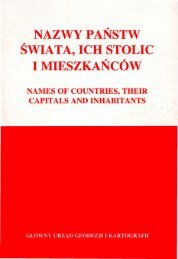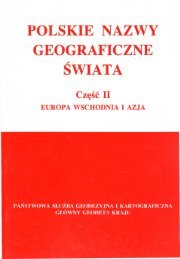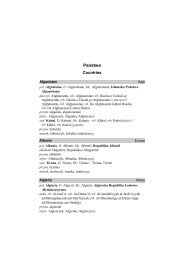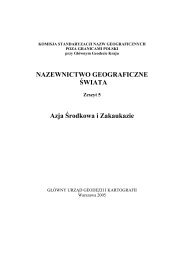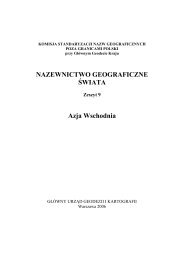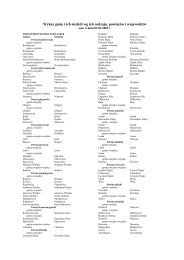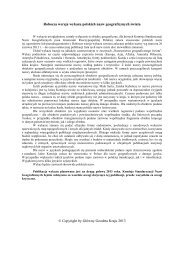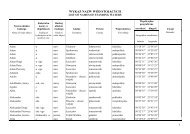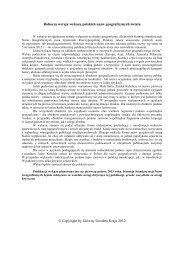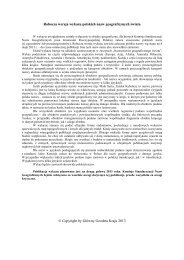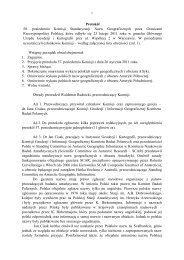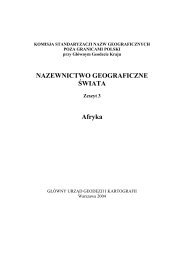TOPONYMIC GUIDELINES OF POLAND - KSNG Nazwy geograficzne
TOPONYMIC GUIDELINES OF POLAND - KSNG Nazwy geograficzne
TOPONYMIC GUIDELINES OF POLAND - KSNG Nazwy geograficzne
You also want an ePaper? Increase the reach of your titles
YUMPU automatically turns print PDFs into web optimized ePapers that Google loves.
I. LANGUAGE1. General CharacteristicsThe official language of Poland is Polish. It is spoken by themajority of inhabitants of Poland (Poland has 38,664,200 inhabitantsas of September 30, 2001 – after the ‘Biuletyn Statystyczny GUS’ no.12/2001).Historically, Polish belongs to the Slavic group of the Indo-European languages. Typologically, Polish is an inflected languagewith three genders (masculine, feminine, neuter) and two numbers(singular and plural). Within the declension, the categories of number,gender and grammatical case can be discerned. In both numbersnomina have seven grammatical cases. Within the nomina groupnouns and adjectives are particularly important for geographical andplace names. Formants are used to create adjectives from nouns inPolish.There are two types of sounds in the Polish phonologicalsystem: vowels (oral and nasal; front and back; high, mid, low) andconsonants (hard and palatal; voiced and voiceless; sonants andobscurants, i.e. fricative, half-open, affricates, oral and nasal). Three)consonant series: A – [s, z, ts,t ) ç,d ) z ], B ∫ – [ , z, t )∫ ,d ) z ],andC–[ç, z,d ) z ] are characteristic of the Polish language.Consonants are used in Polish words much more often thanvowels. Also, there are quite many consonant groups. The stress inPolish usually falls on the penultimate syllable.Literary Polish has a several hundred-year tradition. Its rules arecodified in dictionaries and grammar books. The rules of spelling andpronunciation are also established. Regional dialects of Polish are notusually reflected in geographical names, which are most often used instandardized literary forms.12


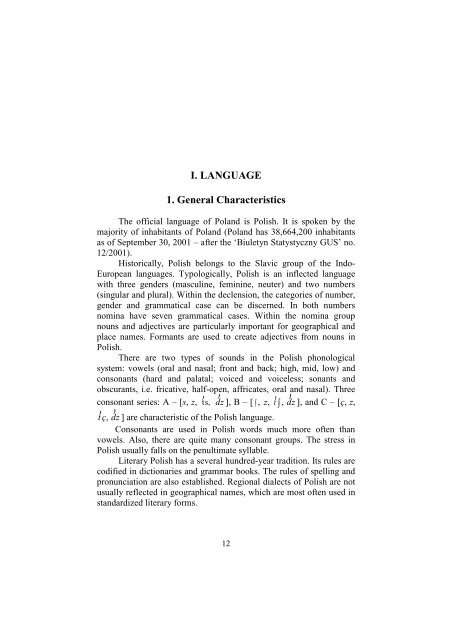
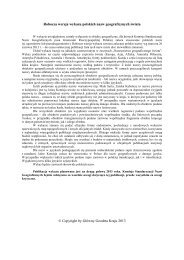
![Wykaz nazw miejscowości do mapy [plik pdf] - KSNG Nazwy ...](https://img.yumpu.com/51618887/1/184x260/wykaz-nazw-miejscowosci-do-mapy-plik-pdf-ksng-nazwy-.jpg?quality=85)
